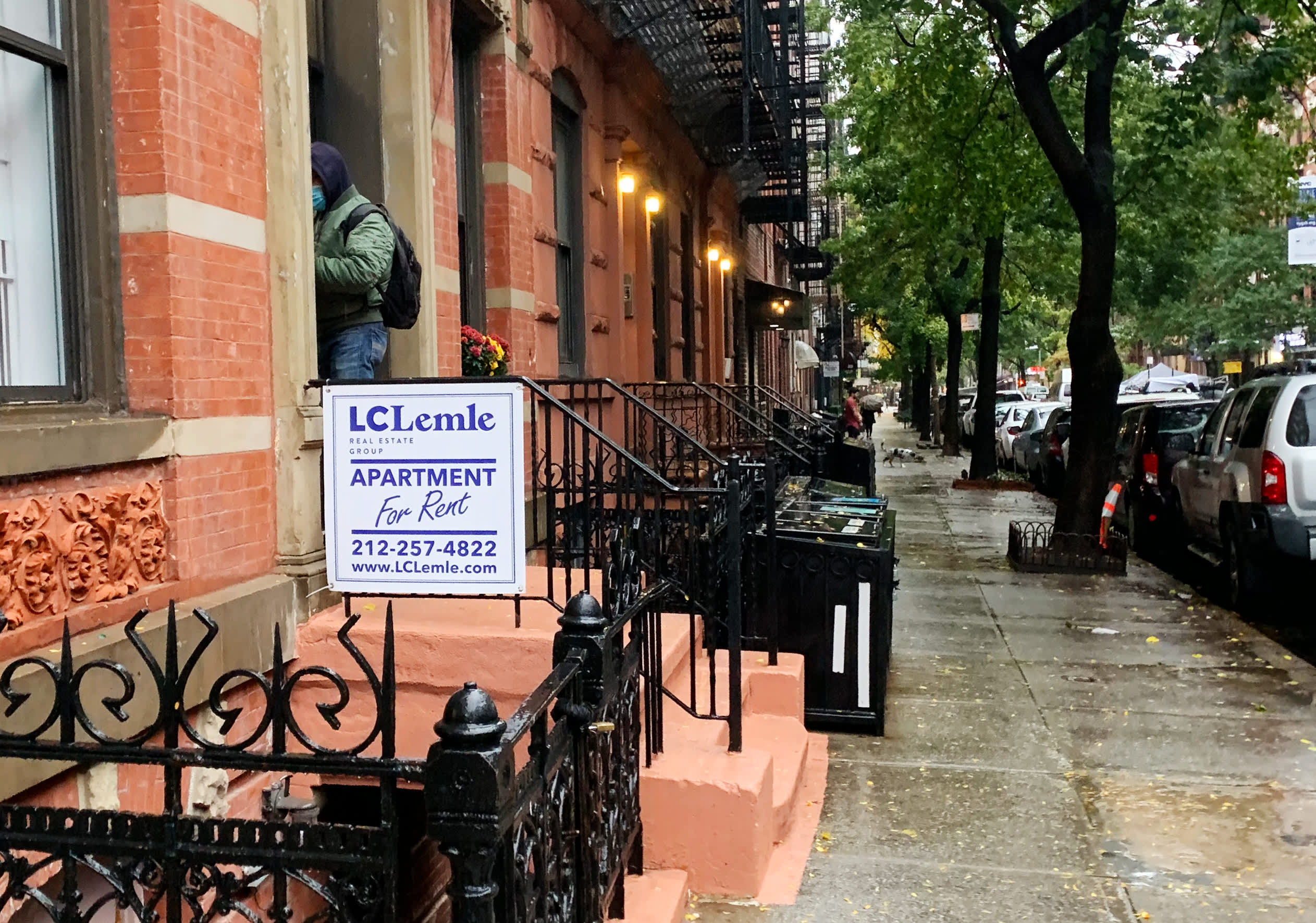Big drop in Manhattan apartment prices begins to lure back younger renters

Sign advertising apartments for rent in the Upper East Side in New York City.
Adam Jeffery | CNBC
Manhattan real estate may be turning the corner, as new rentals increased for the first time in over a year and sales activity started to creep higher after the Covid collapse.
A big drop in rental prices appears to be luring new, younger renters back to the city, even as office workers and wealthy New Yorkers remain in the suburbs and more rural resort towns. New leases in Manhattan increased 33% in October, making it the best October in 12 years, according to a report from Douglas Elliman and Miller Samuel.
The typical rent paid for apartments including discounts, or the median net effective rent, fell 19% from a year ago to $2,868 — a record decline. Smaller apartments, which cater to younger renters, fell the most. The price of studio apartments was down 21%, and one-bedroom apartment prices dropped 19%.
“I think we’re at a tipping point where the consumer starts coming back to the city,” said Jonathan Miller, CEO of Miller Samuel. “Sellers are slowly recalibrating what the values are, and the lower pricing is beginning to bring more people in.”
Manhattan real estate still faces major challenges. There were 16,145 unrented apartments in October — an all-time high. The vacancy rate, which typically hovers around 2%, is now over 6%. All those empty apartments mean landlords will have to continue to lower rents and offer incentives to lure people back to the city.
On average, landlords are offering more than two months of free rent, and over 60% of new leases in October had some form of incentive or discount, according to the report. Apartments are sitting on the market an average of 33 days, compared with 26 days a year ago.
Yet even the sales market in Manhattan is beginning to stir after a dismal spring and summer. Brokers say the election and recent news about a vaccine have unleashed a surge in showings, inquiries and interest from buyers. Sales contracts between Nov. 1 and Nov. 10 jumped 21%, according to Garrett Derderian, director of market intelligence for brokerage firm Serhant.
While prices in the sales market have not fallen nearly as much as the rental market, brokers say even a 5% to 10% discount on sales prices is enough to attract buyers who have been waiting for a better entry point into Manhattan real estate for years.
“The market may now have reached a turning point, where the uncertainty surrounding the presidential election is behind us and a possible vaccine is on the horizon,” Derderian said. “Many buyers who have been watching from the sidelines as prices declined and negotiations increased seem poised to jump into the market, and many already have, understanding once a vaccine is found, the market will shift again.”
Manhattan could still have a tough winter ahead with more virus cases and companies preferring to keep most of their workforces remote. New York City and New York state face high unemployment and multibillion-dollar budget holes, which will have to be filled with tax increases, service cuts or both — all of which could make the city less attractive to buyers.
And with the average rental price for a one-bedroom apartment still over $3,200 — more than twice the national average — Manhattan is still far from affordable for many young renters. Still, experts say the October increases could begin a long, slow recovery for the nation’s largest real estate market.
“A lot will have to happen for New York to come roaring back,” Miller said. “It’s going to be a multiyear process.”




